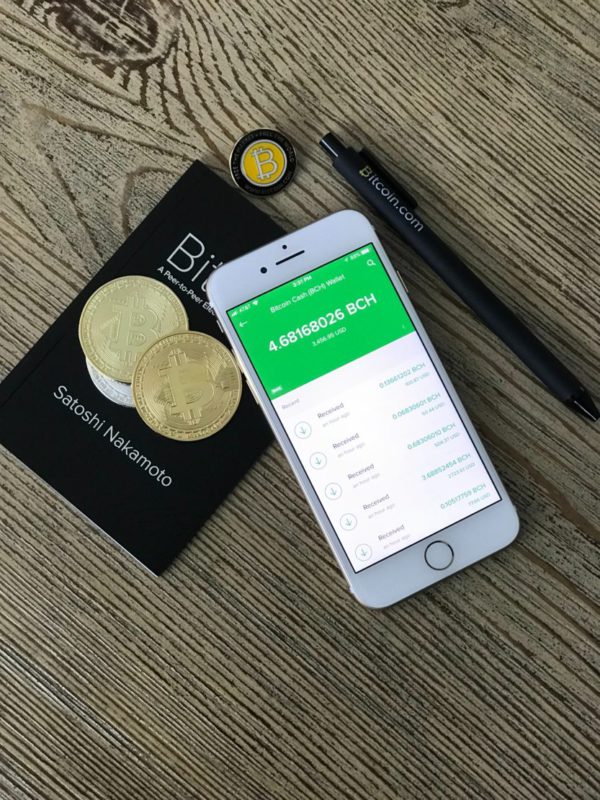Top 3 Essentials For Bitcoin Mining And The Basics For Beginners
There was a “Gold Rush” in Canada about a century ago because of the finding of gold. When did the phenomenon known as the “Gold Rush” begin, and why? Those seeking financial success through gold mining flocked to Canada’s Klondike region. However, mining became increasingly difficult as the number of miners in the area increased. Bitcoin, the first cryptocurrency, has followed gold’s path to rarity and high value. As a result, a Bitcoin mining guide has become a crucial tool for anyone considering getting into cryptocurrency mining today.
When it comes to Bitcoin, what exactly does “mining” entail? There are a lot of questions that need to be answered before you can begin Bitcoin mining. In this article, we’ll go through the fundamentals of Bitcoin mining so you can get started earning Bitcoins.
Mining for Bitcoins: What It Is and How It Works
First, you should familiarise yourself with Bitcoin mining in general before you start looking for advice on how to mine Bitcoin successfully. By taking part in the Bitcoin network’s Proof of Work consensus mechanism, as is commonly referred to as “mine,” users can earn Bitcoins. Bitcoin’s discovery of new blocks and transaction validation are both dependent on the Proof of Work consensus process.
First and foremost, Bitcoin miners’ involvement is essential to ensuring the security of the Bitcoin blockchain. Once a transaction has been recorded on the blockchain, it may be impossible to undo, thanks to the Proof of Work consensus method.
The answer to the question, “Is Bitcoin mining profitable for beginners?” depends on how Bitcoin mining is carried out.
- When a monetary transaction is initiated using cryptocurrency, mining begins.
- The blockchain is a distributed ledger that records transactions as “blocks” that are then linked to one another.
- Having a hash for a transaction’s storage and finalisation on the blockchain is now necessary. You’ll need a hash function that can map information alongside transaction IDs on the blockchain at this stage of the mining process.
- Miners then begin competing with one another to find the correct hash as part of the Proof of Work process. By solving the cryptographic issues involved in creating hashes, miners may prove their worth after the hash was found.
- At long last, the winning miner would be rewarded with crypto tokens like Bitcoin.
Successful Bitcoin miners are guaranteed payment, demonstrating the industry’s potential for profit. The potential for Bitcoin block rewards is an undeniable incentive for newcomers to enter the Bitcoin mining industry. Verifying a block of transactions now yields a reward of about 6.25 BTC. New miners should be aware, though, that the return per unit of work is reduced when miners collaborate in mining pools.
Bitcoin Mining: The Necessary Prerequisites
The success of a Bitcoin miner app or popularity numbers can inspire newcomers to begin mining right away. Bitcoin mining is preferred by many since it is cheaper than buying Bitcoin. While it’s tempting to go right into Bitcoin mining, you should first familiarise yourself with the process’s essential prerequisites. The following is a list of the primary resources required to start Bitcoin mining.
Currency in the form of Bitcoin or a Digital Currency Wallet
A Bitcoin or crypto wallet is the first thing that will jump out at you if you’re reading a beginner’s guide to Bitcoin mining. No of the wallet style. Miners should only use one that provides a high level of security. A Bitcoin or other cryptocurrency wallet is helpful for obtaining minting incentives. Depending on the strength of your mining setup, you may see substantial amounts of cryptocurrency being minted and deposited into your wallet. Therefore, when choosing a Bitcoin wallet, safety should always be the first priority. Despite their complicated interfaces, hardware wallets have proven to provide adequate security. As a result, many Bitcoin miners choose software wallets so they can take advantage of the currency’s portability.
Hardware for Mining
The second major point to emphasise in an introduction to cryptocurrency mining is the significance of mining hardware. To “mine” Bitcoin, miners need special hardware. The potential for greater profits can be increased by using more powerful mining hardware. However, there are a plethora of other considerations that need to be made while selecting mining hardware.
Software for Mining
Bitcoin miners need Bitcoin mining software so they may participate in the mining process. Using mining software, the mining hardware can be instructed to carry out a variety of tasks. In order to tell their mining hardware how to mine, miners can utilise mining software. The Bitcoin address for sending mining rewards is also defined, and the conditions under which the mining algorithm must function are laid down. You should know that mining software is a major factor in the end result.
The Crypto Fundamentals, Trading, and Investing course will help you learn the ropes of the blockchain and digital currency market.
When it comes to Bitcoin mining hardware, what do you recommend?
Initial Bitcoin mining in 2009 presented only modest challenges to amateurs. In order to take part in the mining process, miners were able to make use of their low-power devices’ central processing unit (CPU) resources. If you started mining Bitcoin when it first became popular, you would find any Bitcoin mining instruction to be far more straightforward. There was a period of time when miners could use their own computers to find and validate blocks, earning about 50 BTC for their efforts.
Computer Graphics Processing Unit Mining
However, as Bitcoin mining gained popularity, competitors sought ways to gain an advantage. So, in 2010, GPU mining became a thing. In the instance of graphics processing unit (GPU) mining, Bitcoin was mined by coordinating large pools of GPUs. When compared to mining with a central processing unit, GPU mining is over six times more efficient.
Mining on FPGAs
As GPU mining gained popularity, more efficient mining hardware was developed. For those just getting started in Bitcoin mining, Field Programmable Gate Arrays (FPGAs) offer a promising solution, promising more efficiency at a lower cost. Up until 2013, FPGA mining hardware was used by the vast majority of cryptocurrency miners.
Mine using ASICs
ASIC, or application-specific integrated circuit, gear, has finally arrived as the latest generation of Bitcoin mining hardware. Bitcoin mining is now extremely sophisticated and can only be done profitably on supercomputers with many processing units. As a result, ASIC mining hardware has emerged as the gold standard for optimising Bitcoin mining’s performance and energy efficiency.
Is Bitcoin Mining Worth It?
Potential Bitcoin miners have a number of challenges, one of the most notable being the currency’s volatility. There is no universal answer to the question, “Is Bitcoin mining viable for beginners?” For Bitcoin mining to be financially viable, a number of factors must point upward, and one of these is the dramatic increase in Bitcoin’s market value. The mining hardware is one of the most crucial aspects that might affect the profitability of Bitcoin mining. Mining rigs with more processing power may solve cryptographic riddles more quickly, which would speed up the process of finding and verifying blocks of transactions. This meant that miners with more robust mining hardware might reap greater profits. However, it is also worth noting that high-performance mining hardware is typically quite pricey.
For newcomers to Bitcoin mining, the cost of power is a further key factor in evaluating whether or not mining is profitable. Bitcoin miners incur significant fees in the form of electricity usage. As a result, having access to low-cost and reliable electrical connections may aid in optimising mining profits. The expenses of upgrades, installations, and cooling systems should also be factored into a miner’s budget. In addition, miners who use a pool need to consider how the pool fee may affect their earnings.
Also, read – Your Ultimate Guide To Bitcoin And Crypto Mining Pools
Recommended Methods for Choosing Mining Software
Learn the fundamentals of Bitcoin mining and the necessary components to make a profit. However, keep in mind that the mining hardware cannot function independently. In order to get their Bitcoin mining hardware to perform the way they want it to, miners will need Bitcoin mining software. The mining software, together with mining pools, is necessary for regulating the selection of mining algorithms. A variety of options, such as cloud-based mining programmes, can be found by perusing a list of the top Bitcoin mining software.
You may expect similar basic features from most mining software examples in any Bitcoin mining beginner’s tutorial. There are, however, a wide variety of differences in their usefulness and extra features. The software chosen to run the process could be an important factor in how productive Bitcoin mining is. As a result, you shouldn’t settle on just one mining software for the long haul before giving it a thorough test drive. If you’re looking to start mining Bitcoin, here are some of the most important factors to consider.
- Make sure the mining programme runs well on your computer’s OS.
- Miners should also verify support for Bitcoin’s SHA265 mining algorithm.
- The software used for mining must also guarantee compatibility with various mining hardware architectures.
- Another important consideration in a beginner’s guide to cryptocurrency mining for the choice of mining software is the software’s resource efficiency.
- Last but not least, miners should check if advanced options like scheduling, automatic coin switching, and remote access are available.
Cryptocurrency flashcards are a great way to study for crypto-related exams and advance your crypto expertise.
Mining Pools: An Introduction for Bitcoin Novices
Bitcoin miners now have access to a wealth of resources because of the widespread dissemination of Bitcoin wallets, mining hardware, and mining software. These days, it’s not enough for a Bitcoin mining guide to mention Bitcoin mining pools; they must be emphasised throughout. A Bitcoin mining pool is a group of miners who pool their resources to increase their chances of mining Bitcoins. As opposed to relying on a single miner, several miners working together may speed up the process of discovering new blocks. As a result, mining pools can provide solid opportunities for long-term financial gain. Individual miners are unlikely to produce substantial results without access to specialist mining hardware.
Each miner contributes a small percentage of their total mining power to the whole pool, which works towards a common goal. Depending on how much they mined, each miner would receive a share of the pool’s Bitcoin payout. If you provide 5% of the hash rate to the mining pool, you will earn 5% of the earnings. Since mining pools don’t promote healthy competition, they’re a great place for newcomers to get started earning Bitcoin. Mining pools are a great way for beginners to get started, but it’s important to remember that everyone has their own preferences. It is worth noting, nevertheless, that larger mining pools can provide the promise of more consistent mining profits.
How do you find a reputable pool if you’re new to Bitcoin mining? A mining pool’s efficacy can be determined by a number of criteria, all of which miners must look for. Transparency, work assignment methods, price structures, and minimum payout restrictions are all crucial when picking a mining pool. The reliability and technological prowess of the mining pool are the two most essential qualifications. An optimal mining pool would be one that contributes to the expansion of the ecosystem, say experts.
Could novices start mining on the cloud?
Bitcoin miners are required to use their own specialised hardware and participate in a collective effort known as a “mining pool.” On the other hand, cloud mining offers a simple and dependable option for Bitcoin miners just starting out. As miners have been able to rent processing capacity from providers for the mining process, cloud mining has gained significant interest. This means that there are almost no entry requirements for newcomers to the Bitcoin and cryptocurrency mining industries. You should exercise caution when selecting cloud mining services and study the fine print of any contracts you enter into.
Conclusion
The summary of the key components provides an all-inclusive guide to getting started in the cryptocurrency mining you’ll need for Bitcoin mining. However, in order to set up the optimal mining rig, you must adhere to the best practices for selecting a Bitcoin miner app, hardware, and wallets. The use of cloud mining providers or mining pools can reduce entry barriers, but new miners should still think about them. New opportunities have opened up for amateur cryptocurrency miners as a result of the increasing complexity of mining software and the rapid evolution of mining gear. Building a mining infrastructure successfully requires first defining resource availability and budgetary targets. Start researching Bitcoin mining hardware and software now.
Stay informed with daily updates from Blockchain Magazine on Google News. Click here to follow us and mark as favorite: [Blockchain Magazine on Google News].
Get Blockchain Insights In Inbox
Stay ahead of the curve with expert analysis and market updates.
latest from tech
Disclaimer: Any post shared by a third-party agency are sponsored and Blockchain Magazine has no views on any such posts. The views and opinions expressed in this post are those of the clients and do not necessarily reflect the official policy or position of Blockchain Magazine. The information provided in this post is for informational purposes only and should not be considered as financial, investment, or professional advice. Blockchain Magazine does not endorse or promote any specific products, services, or companies mentioned in this posts. Readers are encouraged to conduct their own research and consult with a qualified professional before making any financial decisions. The featured image used is just a creative depiction of the title and it does not intend to hurt sentiments of any person or institution. If it hurts anyone sentiments, please do not hesitate to reach out to Blockchain Magazine.

 Bitcoin
Bitcoin  Ethereum
Ethereum  XRP
XRP  Tether
Tether  Solana
Solana  USDC
USDC  Dogecoin
Dogecoin  Cardano
Cardano  Lido Staked Ether
Lido Staked Ether  TRON
TRON  Wrapped Bitcoin
Wrapped Bitcoin  Chainlink
Chainlink  Wrapped stETH
Wrapped stETH  Sui
Sui  Avalanche
Avalanche  Stellar
Stellar  Shiba Inu
Shiba Inu  Hedera
Hedera  Toncoin
Toncoin  LEO Token
LEO Token  Hyperliquid
Hyperliquid  Bitget Token
Bitget Token  Litecoin
Litecoin  WETH
WETH  USDS
USDS  Polkadot
Polkadot  Bitcoin Cash
Bitcoin Cash  Ethena USDe
Ethena USDe  Wrapped eETH
Wrapped eETH  MANTRA
MANTRA  Uniswap
Uniswap  Pepe
Pepe  Ondo
Ondo  Monero
Monero  Aave
Aave  NEAR Protocol
NEAR Protocol  WhiteBIT Coin
WhiteBIT Coin  Mantle
Mantle  Official Trump
Official Trump  Aptos
Aptos  Dai
Dai  Internet Computer
Internet Computer  Ethereum Classic
Ethereum Classic  Bittensor
Bittensor  Cronos
Cronos  OKB
OKB  POL (ex-MATIC)
POL (ex-MATIC)  Gate
Gate 




